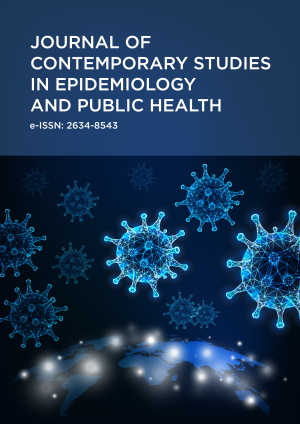Abstract
The psychological process that underpins the nexus between academic performance and depression among students is still largely unspecified. This study aimed to investigate whether sleep duration and psychological stress sequentially mediate the relationship between academic performance and depression. 510 consented Nigerian physiotherapy undergraduates responded in this cross-sectional survey. Depression and psychological stress were assessed using the depression and stress sub-scale of the depression, anxiety and stress scale-21; while sleep duration and academic performance were assessed by self-report using a proforma. A serial mediation analysis was performed. The prevalence of depression, psychological stress, and sleep disturbance was 36.5%, 22.5%, and 73.9%, respectively. Serial mediation analysis showed that academic performance was negatively associated with depression (β = -1.003; 95% confidence interval [CI]: -1.716, -0.291). Psychological stress (β = -1.157; 95% boot CI: -1.994, -0.334) but not sleep duration (β = 0.030; 95% boot CI: -0.048, 0.122), significantly mediated this relationship. Although sleep duration alone was not a significant mediator, it contributed as the initial step in a significant serial mediation pathway, where reduced sleep duration increased psychological stress, which in turn heightened depression (β = -0.159; 95% boot CI: -0.346, -0.031). The total indirect effect of sleep duration and psychological stress was significant (β= -1.287; boot CI: -2.119, -0.471) and accounted for 56.2% of the total effect of academic performance on depression. Sleep duration and psychological stress jointly mediate the relationship between academic performance and depression among university students. Efforts to mitigate depression in this population should therefore address the interconnected roles of academic demands, sleep, and stress.
Keywords
License
This is an open access article distributed under the Creative Commons Attribution License which permits unrestricted use, distribution, and reproduction in any medium, provided the original work is properly cited.
Article Type: Original Article
J CONTEMP STUD EPIDEMIOL PUBLIC HEALTH, Volume 6, Issue 1, 2025, Article No: ep25004
https://doi.org/10.29333/jconseph/17215
Publication date: 05 Oct 2025
Article Views: 815
Article Downloads: 1476
Open Access References How to cite this article
 Full Text (PDF)
Full Text (PDF)